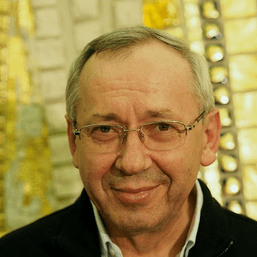SUMMARY
This is AI generated summarization, which may have errors. For context, always refer to the full article.

MANILA, Philippines – Pope Francis named Cardinal Luis Antonio Tagle, one of his two right-hand men at the Vatican’s evangelization department, as his special envoy to the biggest US Catholic congress in eight decades.
Tagle, 66, is the Pope’s special envoy to the 10th US National Eucharistic Congress at Lucas Oil Stadium in Indianapolis from July 17 to 21.
He is currently one of two pro-prefects of the Vatican’s Dicastery of Evangelization, the most important Vatican bureau under Pope Francis. It is the only dicastery led by the Pope as prefect.
The president of the US Conference of Catholic Bishops, Archbishop Timothy Broglio, said Tagle’s appointment as special envoy is “a gift to the Eucharistic Congress.”
Broglio said Tagle has a “deep passion for apostolic mission rooted in the Eucharist,” which “is sure to have an inspirational impact for everyone attending the Congress.”
He also mentioned how Tagle was familiar with the US, having earned his doctorate in theology at the 137-year-old Catholic University of America, Washington DC, in 1991. Tagle, who was on a scholarship and worked as a library assistant without introducing himself as a priest, graduated summa cum laude.
Tagle, a charismatic preacher who formerly headed the Archdiocese of Manila and the Diocese of Imus in Cavite, is set to lead the closing Mass of the National Eucharistic Congress on July 21.
Troubling times
The National Eucharistic Congress is the highlight of the three-year National Eucharistic Revival in the US, an effort to educate Catholics about the Mass and to stop the trend of dwindling Mass attendance.
The congress is expected to attract 50,000 Catholics – down from an initial projection of 80,000 – and costs for the event are estimated at $14 million, half the original estimate of $28 million that had seen a “pushback from bishops, Catholic media, and Catholics online,” according to The Pillar.
This is the first National Eucharistic Congress in 83 years. The last one was held at Minneapolis-Saint Paul from June 23 to 26, 1941, attracted up to 475,000 participants.
The 10th National Eucharistic Congress comes at a troubling time for the US Catholic Church: Pew Research Center says only about three out of 10 US Catholics attend church every week, while analysts have noted divisions in politics and ideology, not to mention sex abuse scandals that have rocked the institution.
One of the US Catholic Church’s internal sources of conflict is the language used at Mass. A vocal minority has pushed for a return to the use of Latin, arguing that it is the most solemn way of celebrating Catholic liturgies. The Pope, however, has restricted the traditional Latin Mass in favor of liturgies in the vernacular to ensure “full and active participation” in line with the Second Vatican Council.
Political divisions have also rocked the Catholic Church, with critics of US President Joe Biden, who is a Catholic, accusing him of going against the church on issues such as abortion.
Tagle, who was part of an editorial committee that drafted a history of the Second Vatican Council, is a known rockstar at Eucharistic congresses worldwide.
He is remembered to have “brought an entire stadium to tears” at the 49th International Eucharistic Congress in Quebec in 2008, according to Vatican journalist John Allen, putting him on the radar as a papal candidate in the 2013 conclave.
It was in the Quebec IEC that he blasted “idols” such as the “god of profit,” the “god of ‘progress,’” and the “god of national security.” He also rejected special treatment for priests as he called for greater humility among church leaders. – Rappler.com
Add a comment
How does this make you feel?





There are no comments yet. Add your comment to start the conversation.